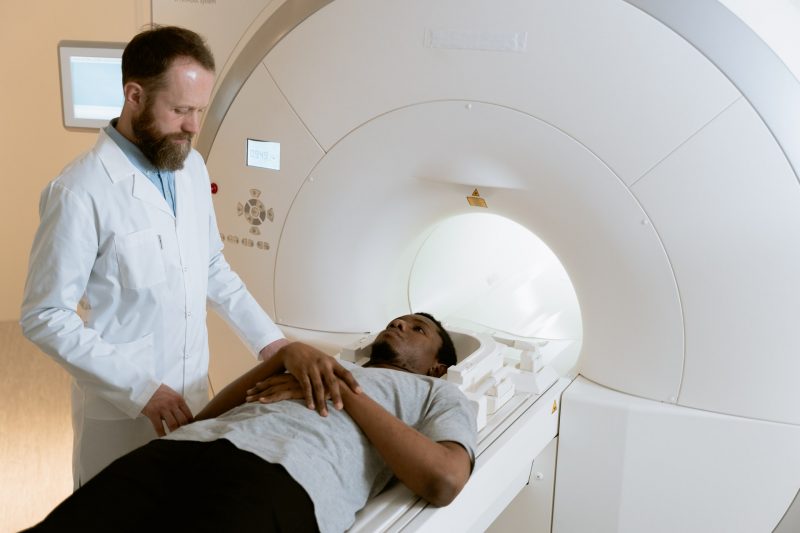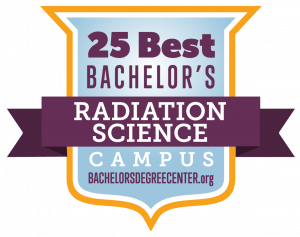
Key Information:
- UNC Chapel Hill and Texas A&M have the top bachelor’s in radiation science degree programs.
- A Bachelor’s in Radiation Science provides students with in-depth knowledge of medical imaging techniques, radiation safety, and therapy procedures, preparing them for roles in radiography, radiation therapy, and nuclear medicine.
- Graduates are equipped to work in hospitals, clinics, and research settings, with the option to pursue advanced certifications in specialized areas like MRI, CT scans, or dosimetry.
It’s important that you feel fulfilled by your career choice. You want to work in a field that will challenge and inspire you every day. And by pursuing your bachelor’s degree in radiation therapy, you can do just that. Not only can this career be fulfilling, but it can also provide stable employment opportunities. A degree will help you get started in this career.
Radiation therapists are primarily responsible for delivering radiation to patients, usually as a treatment for cancer. They primarily work in hospitals or clinics where they administer radiation treatments, monitor patients during these treatments, and document patient care activities during their shift. With a radiation science degree, you’ll learn the skills you’ll need to perform these tasks effectively. Other radiation science technicians help provide diagnoses. They operate the machinery that shows images of the body from the inside.
Methodology: Ranking the Best Radiation Science Degree Programs
Bachelor’s Degree Center is dedicated to helping prospective college students and their families make the best decision for their schooling and career. That’s why the BDC ranking of the best radiation science bachelor’s programs features only accredited institutions, ranked with reliable data from IPEDS and Niche. Programs are ranked by tuition cost, student satisfaction, and graduate salaries.
1. University of North Carolina in Chapel Hill

The University of North Carolina in Chapel Hill offers a BS in Radiologic Science (BSRS) that is among the leading radiation science degree programs available online. This bachelor’s degree in radiation therapy from UNC offers two curriculum concentrations – diagnostic medical sonography (DMS) or diagnostic and interventional radiology (DIR). Graduates of UNC’s undergraduate degree in radiation science may be eligible to sit for certification exams offered by ARDMS and ARRT.
The University of North Carolina at Chapel Hill was established in the 1780s and now operates as the flagship campus for the state, with a student enrollment of more than 29,950 postgraduate and undergraduate students each year.
What We Like: The University of North Carolina is recognized to be the only public higher learning institution to award higher learning degrees to students during the 18th century.
Degree: BS in Medical Imaging
2. Texas A & M University

Texas A & M University offers a BS in Radiological Health Engineering that is among the most innovative radiation science degree program in the Lone Star State. Graduates of Texas A & M University’s bachelor’s degree in radiation therapy find rewarding careers providing new radiotherapy technologies or the use of advanced medical imaging equipment. Coursework includes radiation health, risk and regulation, dosimetry and dose assessment, and the fundamental and applied radiation detection, among others.
Texas A & M University is a senior military college that was founded under the Morrill Land Act in the 1870s. Texas A & M University is now also a sea-grant and space-grant institution of higher education, with more than 72,000 students studying online and on-campus each year.
What We Like: Texas A & M University is the home of the George Bush Presidential Library situated on its 5,000+ acre campus in College Station.
Degree: BS in Radiological Health
3. University of Missouri at Columbia
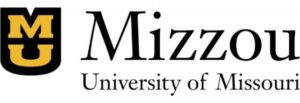
The University of Missouri offers a Bachelor of Health Science degree (BHS) in Radiologic Technology that is accredited by the Joint Review Committee on Education in Radiologic Technology (JRCERT). The University of Missouri’s bachelor’s degree in radiation therapy program includes these featured classes – radiography procedures, introduction to statistical reasoning, radiologic pharmacology, sectional anatomy, and cardiac interventional radiography, to name a few. This innovative radiation science degree program requires 120-semester credits to meet UM’s criteria for graduation.
The University of Missouri (Mizzou) is a land-grant and space-grant school that was established in the late 1830s under the Morrill Land Grant Act. The campus of the University of Missouri in Columbia serves approximately 31,050 undergraduate and postgraduate students each year.
What We Like: The University of Missouri is home to the globe’s most potent reactor housed in a university – the only source of nuclear isotopes used in medicine for the nation.
Degree: BHS in Clinical and Diagnostic Sciences
4. University of Mississippi

The University of Mississippi offers a BS in Radiologic Sciences that performs as a completion radiation science degree program, with students applying after completing their first two years of general education. The University of Mississippi’s 124 credit bachelors degree in radiation therapy program offers students a liberal arts foundation but offers electives to match the student’s academic and career interests. The coursework offers training in diagnostic radiography, CT, MRI, and bone densitometry, to name a few.
The University of Mississippi (UM) is the state’s flagship school that was founded in the 1840s as a land-grant higher learning institution. The main campus and medical center in Jackson serve nearly 19,000 students, which makes the University of Mississippi the second-largest school in Mississippi.
What We Like: Several Ole Miss campus sites are acknowledged on the National Register of Historic Places.
Degree: B.S. in Radiologic Sciences
5. Arkansas State University

Arkansas State University College of Nursing and Health Professions offers a BS in Radiologic Science (BSRS) that offers six academic specialist tracks in CVI, MRI, Mammography, Medical Imaging Informatics, Diagnostic Medical Sonography, and Radiation Therapy. Arkansas State University’s bachelors degree in radiation therapy program is accredited by JRCERT, with graduates eligible to sit for the ARRT national certification exam. Sample classes for Arkansas State University’s radiation science degree program include radiation therapy principles, radiation physics, and applied radiation biology, plus a clinical component.
Arkansas State University (A‑State) was founded as an agricultural school in 1909. Arkansas State’s campus – on Crowley’s Ridge in Jonesboro serves nearly 13,900 undergraduate and postgraduate students each year.
What We Like: Arkansas State University is the state’s flagship campus and 2nd largest institution of higher learning in Arkansas.
Degree: BS in Radiologic Science
6. University of St. Francis (IL)

The University of St. Francis offers a BS in Radiation Therapy that has received accreditation from JRCERT. This bachelors degree in radiation therapy program from the University of St. Francis is a 2 + 2 program, where students enter this radiation science degree program by applying to enter during their junior year. Graduates of this degree in radiation science are prepared to sit for the AART national certification exam. Radiologic Technologists applying to the University of St. Francis, who already hold an associate degree, can complete this radiation science degree in only four semesters, including required clinical requirements.
The University of St. Francis (St. Francis U) was established in 1920 as a junior college. The University of St. Francis’s suburban 20+ acre campus serves more than 3,200 students each year.
What We Like: The University of St. Francis also maintains a medical campus in New Mexico.
Degree: BS in Radiation Therapy
7. Wayne State University

Wayne State University College of Pharmacy & Health Sciences offers a JRCERT-accredited BS in Radiologic Technology that has been accredited by the Joint Review Committee on Education in Radiologic Technology (JRCERT). This radiation science degree program offers six modalities – IR, MRI, Mammography, Radiography, CT, and Fluoroscopy. Clinical rotations (30 hours of rotations per week) for Wayne State University’s bachelors degree in radiation therapy program are completed in Detroit at Henry Ford Hospital – an 800+ bed tertiary hospital.
Established as a state-run public institution of higher education, Wayne State University’s main Detroit campus, satellite facilities, and online platform serves more than 26,250 students each year, studying for the more than 300 programs offered by Wayne State’s thirteen colleges/schools.
What We Like: Wayne State University’s satellite facilities are located in the Michigan counties of Wayne, Jackson, and Macomb Counties.
Degree: BS in Radiologic Technology
8. Virginia Commonwealth University
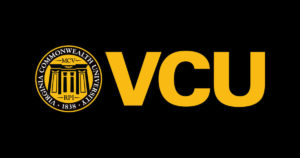
Virginia Commonwealth University College of Health Professions offers a BS in Clinical Radiation Sciences that is ranked among the leading bachelor’s degree in radiation therapy programs in the southern United States. Virginia Commonwealth University’s radiation science degree program offers an impressive one to thirteen faculty-to-student ratio and is Virginia’s only program that offers four modalities — radiography, diagnostic medical sonography, and nuclear medicine technology, plus radiation science. JRCERT, which is better known as the Joint Review Committee on Education in Radiologic Technology, has accredited this radiation science degree from Virginia Commonwealth University.
Virginia Commonwealth University, founded in the 1830s in Richmond, is a research institution of higher education that operates publicly. The university maintains several domestic campuses and online platform and internationally serve approximately 29,150 undergraduate and postgraduate students each year.
What We Like: Several buildings and locations on VCU’s campus are historic buildings – including the school’s Provost quarters.
Degree: BS in Clinical Radiation Sciences
9. Saint Louis University

Saint Louis University Doisy College of Health Sciences offers a BS in Radiation Therapy that is ranked by Best Health Degrees among the leading JRCERT-accredited radiation science degree program in the nation. Students enrolled in Saint Louis University’s bachelors degree in radiation therapy program are eligible to sit for the ARRT exam after completing the required coursework and 1,200 hours of clinical rotations and practicum work. Available clinical sites are located in a variety of health care facilities and centers across Missouri.
Saint Louis University (Saint Louis) is a Jesuit school that was founded as an academy in 1818. This space-grant institution of higher education is also a space-grant school and the oldest west of the great Mississippi River.
What We Like: More than 12,550 students attend classes on the Saint Louis campus and online.
Degree: BS in Radiation Therapy
10. Grand Valley State University

Grand Valley State University Department of Diagnostic and Treatment Sciences offers a BS in Radiation Therapy that prepares students for a wide variety of radiation science job opportunities in Michigan and beyond. Grand Valley State University’s on-campus bachelors degree in radiation therapy program requires 134-semester credits and has received accreditation from the radiation-based Joint Review Committee on Education in Radiologic Technology (JRCERT). This radiation science degree program has been certified by the Board of Certification at ASCP – the American Society for Clinical Pathology.
Established as a Michigan state college in 1960, Grand Valley State University is now a space-grant school with various academic facilities located throughout the state. More than 24,350 students attend classes from GVSU’s seven degree-granting colleges/schools.
What We Like: Grand Valley State University operates facilities in Traverse City, Detroit, Holland, Muskegon, Allendale, and Grand Rapids.
Degree: BS in Radiation Therapy
11. Emory University

Emory University Department of Radiology & Imaging Sciences offers a Bachelor of Medical Science (B.M.SC) degree program in Medical Imaging (MLS) that has been awarded Joint Review Committee on Education in Radiologic Technology (JRCERT) accreditation. This radiation science degree program from Emory University requires the completion of 128 semester hours to meet Emory’s criteria for graduation. Featured classes for Emory’s bachelors degree in radiation therapy program include physical principles of imaging, medical terminology, patient care, and the principles of radiographic technique, plus a clinical clerkship and internship.
Emory University was founded by the Methodist Church as a research school that was founded in the 1830s. More than 15,150 postgraduate and undergraduate students on-campus and online each year. The original land for founding Emory was donated by Asa Candler, Coco-Cola Company’s founder.
What We Like: Emory University Healthcare operates as the largest system in the Peachtree State.
Degree: BS in Medical Imaging
12. Augusta University

The Allied Health Sciences Colleges at Augusta University offers a BS in Radiologic Sciences with an academic emphasis in Radiation Therapy that is considered among the most innovative of Georgia’s bachelors degree in radiation therapy programs. Students applying to this radiation science degree program from Augusta University must have completed 60-semester credits to meet the admission requirements of the Joint Review Committee on Education in Radiologic Technology (JRCERT)-accredited radiation therapy degree program. Augusta University offers a fall semester start date for this undergraduate degree in radiation science, with an application deadline of May 1.
Augusta University began in 1828 as a county academy. Augusta University is now a multiple-campus university, with a student enrollment that exceeds 9,000 each year. Augusta University’s Summerville campus was once an army arsenal.
What We Like: The university maintains three medical-related campuses in Savannah, Albany, and Rome, Georgia.
Degree: BS in Radiologic Sciences: Radiation Therapy
13. Thomas Jefferson University

Thomas Jefferson University College of Health Professions offers a BS in Radiation Therapy (RT)that offers a variety of concentrations in radiation therapy, medical dosimetry, MRI, CT, ICVT, radiography, Echocardiography, Vascular Sonography, and Ultrasound. Thomas Jefferson University’s bachelors degree in radiation therapy program offers one of the few programs with a Virtual Environment Radiotherapy Training. Graduates of Thomas Jefferson University’s JRCERT-accredited radiation science degree program are eligible to take the ARRT national certification exam.
Thomas Jefferson University is a research school that was founded in 1829 as a medical but merged with Philadelphia University in 2017 to great the higher education institute it currently is. Thomas Jefferson University’s urban campus covers more than 100 acres and serves approximately 8,000 students each year.
What We Like: Thomas Jefferson University’s alumni include many renowned physicians, athletes, inventors, and athletes, including a NASA astronaut.
Degree: BS in Radiation Therapy
14. University of Southern Indiana

The University of Southern Indiana College of Nursing and Health Professions offers a BS in Radiologic and Imaging Sciences as either a full or completion bachelors degree in radiation therapy program. Students enrolled in the University of Southern Indiana’s JRCERT-accredited radiation science degree program are eligible to sit for the national ARRT certification examination upon graduation. Students select from three academic emphases – MRI & CT, Radiology Management, or Clinical Education.
The University of Southern Indiana was chartered as an extension center of the state university in 1965, becoming an autonomous regional campus twenty years later in 1985. The school’s 1,400-acre campus and online platform serve more than 9,000 students each year.
What We Like: The University of Southern Indiana offers about 100 programs and degrees from undergraduate to doctoral levels.
Degree: Bachelor’s in Radiologic and Imaging Sciences
15. Siena Heights University

Siena Heights University offers a Bachelor of Applied Science (BAS) in Radiologic Technology that is among Michigan’s longest-standing bachelor’s degree in radiation therapy programs. Those who hold an associate-level degree can transfer their applied credits, with a minimum of 50 additional semester credits required to complete the radiation science degree program. Siena Heights University offers students the opportunity to complete their baccalaureate degree in radiation science online.
Siena Heights University was established as St Joseph’s College in 1919 to help meet the needs of working adults in Michigan and beyond. Approximately 2,000 undergraduate and postgraduate students online and on the school’s 50+ rural acre campus in Adrian, Michigan.
What We Like: Siena Heights University has an ongoing affiliation with Adrian Dominican Sisters, the founders of the school but holds the distinction of being the first all wireless school in the state.
Degree: BAS in Radiologic Technology
16. Howard University

Howard University College of Nursing and Allied Health Sciences offers a BS in Radiation Therapy that requires students to complete 120-semester credits to meet requirements. Classes for Howard University’s radiation science degree program include radiation oncology, sectional anatomy, radiation biology, and physics for allied health, plus a clinical component. Howard University’s bachelors degree in radiation therapy program has received JRCERT accreditation and prepares students for the national ARRT exam.
Howard University is a non-sectarian HBCU (Historically Black College or University) school that is federally and privately chartered in the nation’s capital. Howard University’s campus and online platform serve approximately 9,500 undergraduate and postgraduate students each year.
What We Like: Howard University offers more than 100 programs, the most of any HBCU school in the country.
Degree: BS in Radiation Therapy
17. Bellarmine University
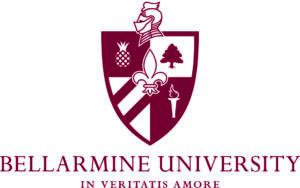
Bellarmine University Lansing School of Nursing and Clinical Sciences offers a Bachelor of Health Science (BHS) in Radiation Therapy that offers students the VERT – real-world experience training – that is recognized to be one of only a few programs in the nation. Clinical rotations for Bellarmine University’s JRCERT-accredited bachelors degree in radiation therapy program are available in Elizabethtown & Louisville, Kentucky, Jeffersonville, Indiana. Bellarmine University’s radiation science degree program offers its enrolled students an impressive student to faculty ratio of 4 to 1 in classes and a 1 to 1 student to faculty ratio in clinical rotations.
Bellarmine University was founded in the 1950s as a private Roman Catholic institution of higher learning – Bellarmine College. The school, named for Saint Robert Bellarmine, is a space-grant school with a student enrollment of approximately 4,000 students each year.
What We Like: Bellarmine University maintains dual campuses in Louisville, with a residential facility in Belknap.
Degree: BHS in Radiation Therapy
18. Idaho State University

Idaho State University College of Health Professions offers a BS in Radiographic Sciences that is accredited by JRCERT and ranked among Idaho’s most innovative bachelors degree in radiation therapy programs. Degree candidates enrolled in Idaho State University’s radiation science degree program are required to complete 1,500 clinical hours in preparation for a successful career. Sample classes for Idaho State University’s radiation science degree include radiographic methods, radiographic imaging applications, and patient care in radiography, to name a few.
Founded in the 1940s as a state college, Idaho State University now operates with multiple campuses in Twin Falls, Pocatello, meridian, and Twin Falls that serve more than 12,150 undergraduate and postgraduate students.
What We Like: Idaho State University offers its students an impressive faculty to student ratio of 13 to 1, with about 6 in 10 students attending the school as full-time students.
Degree: BS in Radiographic Sciences
19. Gwynedd Mercy University
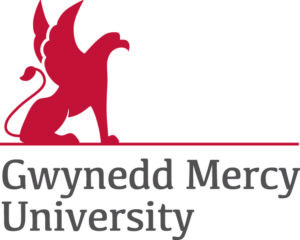
Gwynedd Mercy University’s Frances M. Maguire School of Nursing & Health Professionals offers a BS in Radiation Therapy that is recognized to be one of the leading bachelor’s degree in radiation therapy programs in the greater Philadelphia metro area. In addition, Gwynedd Mercy University’s JRCERT-accredited radiation science degree program can also perform as a completion program for those students who are already a registered radiation therapist will find that the program can be fulfilled in as few as twenty months.
Gwynedd Mercy University is one of 17 colleges and universities in the United States founded by the Sisters of Mercy. Its main campus is located in Gwynedd Valley, PA, just 30 minutes outside of Philadelphia, one of the largest (and best!) cities on the east coast.
What We Like: 97% of 2021 GMercyU grads were employed or in graduate school within 6 months, according to survey respondents.
Degree: BS in Radiation Therapy
20. University of Sioux Falls

The University of Sioux Falls offers a BS in Radiologic Technology that is designed as a completion degree or an entry-level degree. This JRECERT-accredited radiation science degree program includes classes in quantitative reasoning, human physiology, and introduction to organization and biochemistry, plus a colloquium requirement, to name a few. Graduates of the University of Sioux Falls’ leading bachelors degree in radiation therapy program are eligible to sit for the national radiation therapy certification exam offered by the American Registry of Radiologic Technologists.
The University of Sioux Falls was founded in the 1880s as a collegiate institute affiliated with the American Baptist Churches, although the school welcomes students of all faiths. The Sioux Falls campus and distance-learning platform serve approximately 1,500 students each year.
What We Like: The University of Sioux Falls offers study abroad opportunities in South Africa, Puerto Rico, Korea, and Greece.
Degree: BS in Radiologic Technology
21. California Baptist University

California Baptist University offers a BS in Radiologic Sciences and is one of the few postsecondary schools in southern California that offers a bachelors degree in radiation therapy program. This completion accredited radiation science degree program from California Baptist University requires degree candidates to complete 64 credit units, at a minimum. Graduates find rewarding careers as a radiology supervisor, MRI technologist, CT tech, Interventional Radiographer, Lead Radiologic Technician, to name a few.
California Baptist University was founded in El Monte in the 1950s by the California Southern Baptist Church. This private institution of higher education in Riverside serves approximately 11,500 students each year from its suburban campus and online.
What We Like: California Baptist University is organized into eleven colleges/schools that offer programs in business, education, social sciences, nursing, music, Christian ministries, engineering, art/design, and health science, to name a few.
Degree: BS in Radiologic Sciences
22. Roosevelt University

Roosevelt University offers a BS in Radiation Therapy technology that is ranked among the leading national radiation science degree programs, according to BestHealthDegrees.com. Roosevelt University’s bachelors degree in radiation therapy program offers three start dates each year – Summer, Fall & Spring. The first three years of this degree are traditional classes at Roosevelt, with the final year at a clinical school program.
Roosevelt University was founded as a private college in the 1940s. Roosevelt University now operates with the main campus in Chicago and satellite facilities in Schaumburg and Waukegan, Illinois. The university’s newest Wabash building is the tallest building of any educational facility in Windy City.
What We Like: The university is named to honor both the president and his wife and first lady Eleanor.
Degree: BS in Radiation therapy technology
23. Concordia University — Ann Arbor

Concordia University — Ann Arbor College of Health Professionals offers a BS in Radiologic Technology that has a 121-semester credit requirement for graduation and is ranked among Michigan’s leading radiation science degree programs. Students graduating from Concordia University’s bachelors degree in radiation therapy program find rewarding careers as an interventional radiologic tech, a general radiographer, or a mammography technician, to name a few. Concordia University’s undergraduate degree in radiation science is JRCERT-accredited and prepares students for the national ARRT certification exam.
Concordia University in Ann Arbor is a Lutheran Church-based institution of higher education that was established in the 1960s as a junior college. The Ann Arbor campus, which is approximately 185 acres, serves approximately 1,000 students each year.
What We Like: The school’s campus is distinctively mid-century modern, created by Vincent Kling.
Degree: BS in Radiologic Technology
24. Suffolk University

Suffolk University offers a BS in Radiation Science that is among Boston’s most innovative radiation science degree programs. Suffolk University’s bachelor’s degree in radiation therapy program requires a minimum of 126-semester credits to meet program criteria. Featured core classes include radiation physics (with labs), introduction to cancer care, radiation biology, anatomy & physiology, applied behavioral statistics, genetics, biostatistics, and introduction to the cell, plus experiential components.
Suffolk University was chartered as a private law school in 1905. In only two decades, Suffolk University was one of the largest law schools in the nation. The university’s campus in Beacon Hill, Boston, is home to more than 7,500 students and many alumni that including judges and members of congress.
What We Like: Suffolk University also maintains an international facility in Madrid, Spain, for students wishing a study abroad experience.
Degree: BS in Radiation Science
25. Marian University
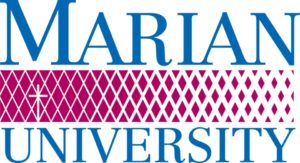
Marian University offers a BS in Radiologic Technology that was one of the first radiation science degree programs available in the state. Marian University’s bachelors degree in radiation therapy program offers an advanced standing, completion path for those working learners who are already licensed as a radiologic technician – all online. Core classes for Marian University’s undergraduate radiation science degree include anatomy and physiology, medical terminology, and principles of radiation protection and biology, to name a few.
Marian University is a private university that is affiliated with the Roman Catholic Church since its inception in the 1930s. Founded as an all-women’s college by the Congregation of Sisters of St Agnes in response to a state law regarding nun attire in public schools, Marian University now serves more than 2,000 students each year.
What We Like: Marian keeps classes small, with an average of 13 students per class and an 11:1 student:faculty ratio.
Degree: BS in Radiologic Technology
Why Get a Degree in Radiation Science or Radiation Therapy?
As the healthcare industry continues to evolve, the demand for highly qualified medical professionals is growing. From nurses to doctors, there are many different careers in the field. Radiation therapy degrees are among the most popular choices because they offer a wide range of job opportunities. Whether you’re looking to make a social impact or just want stable employment, radiation therapy degrees are worth exploring.
Of course, many states don’t require a full bachelor’s degree in radiation therapy. In a lot of cases, you may just need an associate’s degree. That said, a bachelor’s in radiation science degree might take your career further than an associate’s degree.
For one thing, you can stand out from other job-seekers once you graduate. A bachelor’s degree can look great on a resume, especially when many other applicants have an associate’s degree instead. As a result, you may earn a higher starting salary than some of your peers. Plus, some workplaces may prefer applicants who have a bachelor’s degree. By earning your degree, you may qualify for more jobs than your fellow applicants.
Furthermore, a bachelor’s degree can help you qualify for leadership positions. If you’ve always pictured yourself as a leader or administrator, then a bachelor’s degree can help you achieve that goal.
Is Radiation Therapy a Good Career Choice?
Radiation therapy career information can become overwhelming. You may have a lot of questions about radiation therapy, like “What careers can I have with a bachelor’s degree in radiation science?” and “Is radiation therapy a good career choice?”
Starting with the second question, the answer is yes. There are plenty of radiation therapy career pros and cons, just like with any career. However, many people find this career extremely fulfilling.
Radiation science careers have a good outlook. Again, radiation therapy is a high-demand field. According to the Bureau of Labor Statistics, the Medical and Health Services industry will see a 16% growth over the next decade, which is much higher than average. This means there will be more jobs for qualified radiation therapy professionals in the near future.
There are other reasons why you’ll find such a great radiation therapy career outlook. For instance, radiation therapy careers exist on many levels. You might go into radiation therapy itself and provide treatment for cancer patients. Or, your radiation therapy career path may take you in a different direction. For instance, you may go into medical imaging, providing services like X‑rays and CT scans.
Other radiation therapy career opportunities involve administration and supervision. You could oversee teams, manage shifts, and take on other leadership positions in the field. Overall, when you search for radiation therapy technologist careers, you’ll find plenty of possibilities.
Of course, radiation therapy careers offer more than just a good outlook. When you explore radiation therapy as a career, you’ll find social and financial benefits, too. Earning your degree can provide you with a well-paying job. Radiation therapy careers often pay well because they’re in such high demand.
Careers in radiation therapy also give you the opportunity to help people who need it most. You can help provide lifesaving treatment and diagnoses. Often, people choose careers in radiation therapy for the same reason why doctors become doctors: they want to help people. However, when it comes to radiation therapy as a career, you won’t need as much schooling as you would need to become a doctor. This career can help you get to work fast.
You might do a google search for “pros and cons of radiation therapy career.” But if a radiation science career is calling your name, you can find lots of reasons to pursue it.
Related Rankings:
Best Online Bachelor’s in Radiation Science
